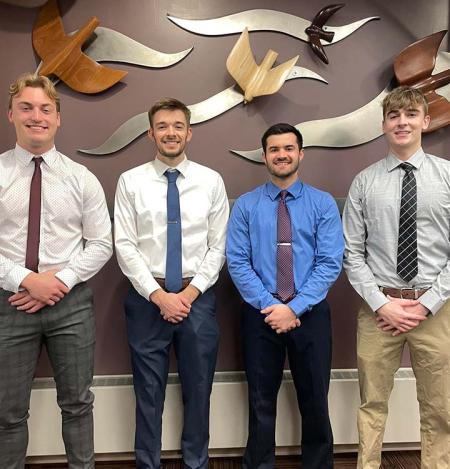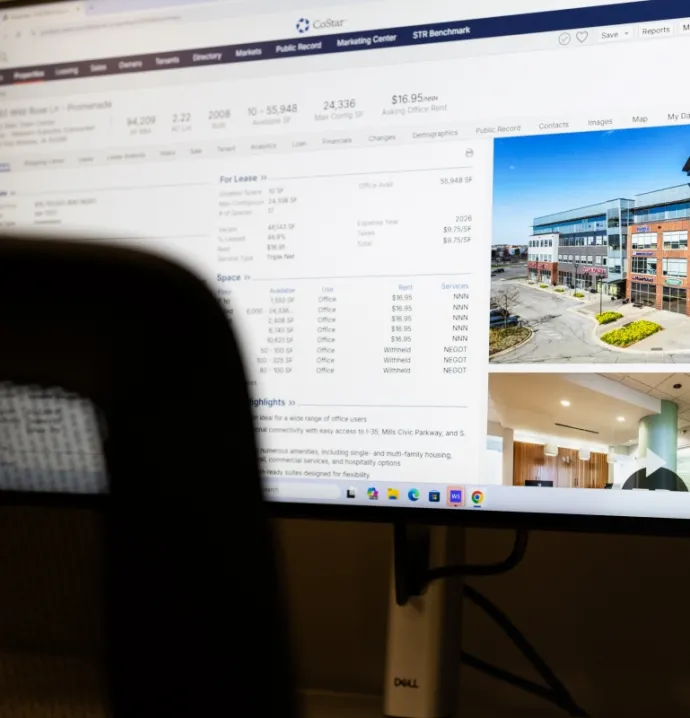Business Courses, Clubs offer opportunities to learn real-world trading tools
Business Courses, Clubs offer opportunities to learn real-world trading tools

It’s hard to replicate the feeling of investing in a real portfolio made up of real money. At UNI’s College of Business, the Krause and the Panther Funds provide opportunities for students to do exactly that.
Each fund is managed by a different group of students. The Krause Fund, which began more than two decades ago when Bill Krause, the founder of Kum and Go, donated $100,000 to UNI, is managed by the Securities Analysis class. Some Krause holdings include Western Union, FedEx, and HNI. The Panther Fund is managed by the Student Investment Group within the Finance Club. Some holdings include Amazon, Apple, Berkshire Hathaway and Walt Disney.
These funds provide enormous benefits for students, who get the opportunity to practice lessons learned in classes and sharpen their skills for future careers. But there is a huge difference, from the perspective of students, between a simulated fund and a real fund.
“Students will have a much more real feel of risk and they will be more serious when dealing with a real fund,” said Ronnie Chen, who oversees the Finance Club. “And the real funds are always more interesting and meaningful to students.”

For the Krause Fund specifically, management takes up an entire semester. First, Securities Analysis students learn investment management tools, and then sharpen them through developing an equity analysis report. The class walks through all aspects of market and economic analysis, stock selection, financial analysis and valuation. Students receive financial theory and application lectures while also hearing from investment professionals in Iowa tying the classroom to the profession.
“The primary benefit of the fund is the real-world experience provided to the students as they evaluate securities and manage money as they would in the investments profession,” said Brett Olsen, one of the three professors teaching the class. “It goes beyond the textbook and classroom.”
For example, students sometimes run into accounting that isn’t as clear as a classroom scenario, which can affect a valuation model and alter predictions. This helps them understand the qualitative side of trading, rather than just looking at numbers. Also, the market volatility due to COVID-19 has given students an interesting perspective on buying and selling.
Trey Dugan (Financial Management and Supply Chain Management, ’22) is part of the Finance Club and said one of his favorite parts of managing the Panther Fund is working with fellow classmates and group members, adding it’s important to learn from his peers while working to grow the overall value of the fund.
“This group provides students with a great opportunity to meet with industry professionals and have full responsibility in managing their own fund,” Dugan said. “It also provides students with networking and leadership experience that is not found in other clubs.”




